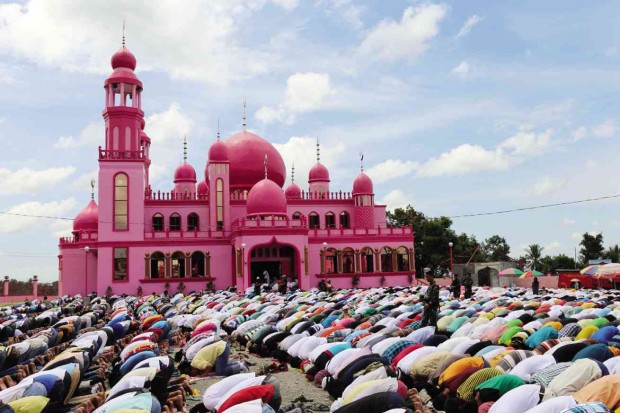Nobel laureate: Don’t ‘muddle up’ terrorism with Islam
UNITED NATIONS — Nobel Peace Prize winner Wided Bouchamaoui urged people everywhere on Thursday not to “muddle up” terrorism with Islam.
The Tunisian businesswoman, who co-founded the Tunisian National Dialogue Quartet which won the 2015 peace prize, said Muslims who practice their faith calmly and respectfully are “victims of a semantic problem” when “terrorists” are described as “Islamic terrorists.”
“I think we should call a spade a spade,” Bouchamaoui told the UN General Assembly’s high-level forum on The Culture of Peace. “A terrorist is a killer, a murderer, a criminal and I would even say an imposter who is manipulating Islam.”
The Tunisian National Dialogue Quartet was cited by the Norwegian Nobel Committee for making a “decisive contribution to the building of a pluralistic democracy in Tunisia” after the Jasmine Revolution of 2011.
Bouchamaoui said Tunisia is still considered “the exception” to the Arab Spring because it has been able to avoid conflict and to promote dialogue and compromise. It has also been able to promote democracy and is taking steps to counter “terrorism,” she said.
Article continues after this advertisementBut after deadly attacks in Tunisia and elsewhere carried out by extremists, she said “it is absolutely crucial to review and reconsider the solutions the international community can provide to the complex issue of terrorism in order to stem as best as possible the evil.”
Article continues after this advertisementBeyond the victims who are often civilians, Bouchamaoui said “terrorism seeks to strike public opinion, to intimidate it by instilling a climate of fear and terror — and they have achieved this in some places.”
The Nobel laureate said she and others intend to join forces to fight extremism, which knows no borders.
“It must be considered as a priority of the UN agenda on the culture of peace and non-violence,” Bouchamaoui said.
Stressing the importance of international action, she said, “I would like to urge each and every one of you not to muddle up terrorism (with) Islam.”
By referring to terrorists as Islamic, Bouchamaoui said, confusion is created in people’s minds between the Muslim faith “and a team of Jihadists who are prepared to blow themselves up by killing innocent people.”
She said threats to peace and security “linked to terrorism” are one challenge Tunisia is facing.
Increased insecurity in Tunisia is mainly the result of “disastrous management” of the conflict in neighboring Libya, Bouchamaoui said. “We are very much paying a very high price for the instability in Libya. It affects our country every day, and our neighboring country.”
She said 2015 was a year of success for Tunisia’s democratic transition, “but a terrible year for Tunisia and the world” because of extremist attacks, uncertainties, and “a lack of vision.”
Bouchamaoui urged international action to help young people find a future in which they have a stake and feel they can make a contribution to the world — so they’re not attracted to extremist groups or drawn into smuggling.
